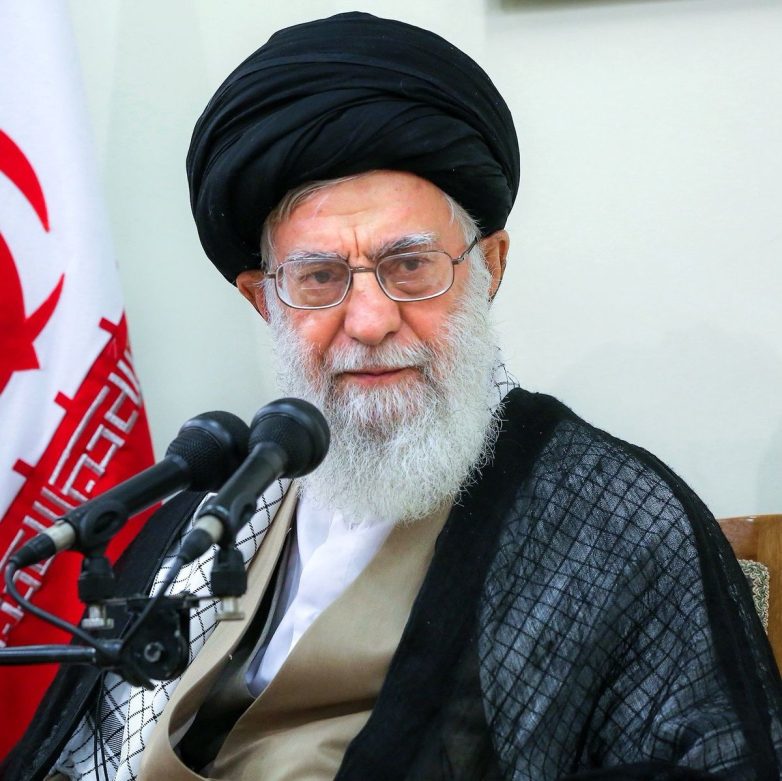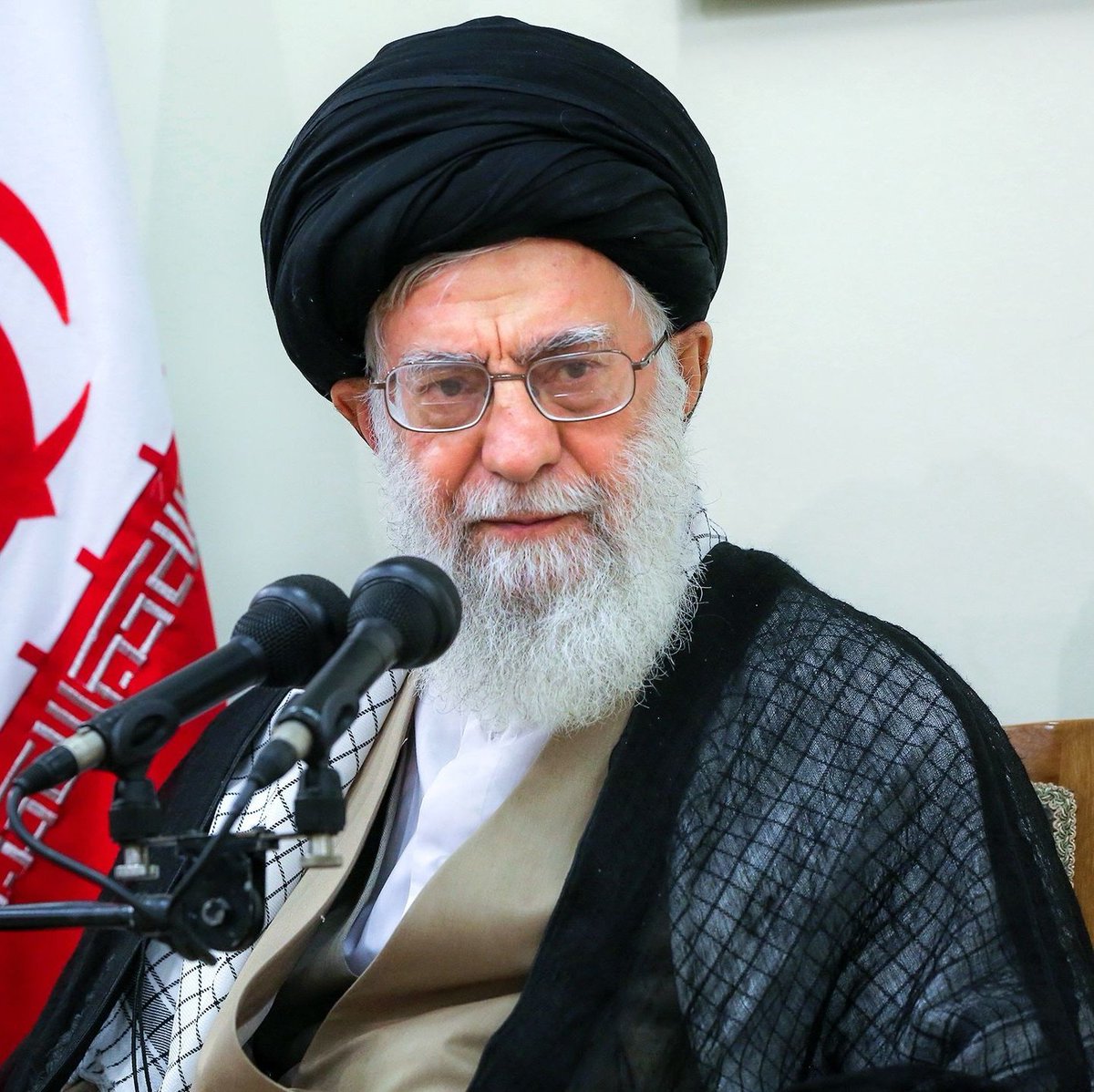
Khamenei’s Bold Challenge: Who Decides Iran’s Right to Nuclear Power?
nuclear sovereignty, Iran geopolitical stance, global nuclear policy
Iran’s Nuclear Programme: A Defiant Stance from Supreme Leader Khamenei
In a recent statement that encapsulates Iran’s unwavering position on its nuclear ambitions, Supreme Leader Ayatollah Ali Khamenei posed a provocative question: “Who are you to tell Iran whether it should have a nuclear programme or not?” This bold declaration reflects Iran’s long-standing defiance against external pressures, particularly from Western nations that have sought to limit its nuclear capabilities. The statement, made public through a tweet by Globe Eye News, underscores a significant moment in the ongoing discourse surrounding nuclear proliferation, regional security, and international diplomacy.
The Context of Iran’s Nuclear Programme
Iran’s nuclear programme has been a focal point of tension between the Islamic Republic and various world powers, especially the United States and its allies. Since the early 2000s, concerns have been raised regarding the potential for Iran to develop nuclear weapons under the guise of a civilian nuclear energy programme. This fear has led to a series of negotiations, sanctions, and agreements, notably the Joint Comprehensive Plan of Action (JCPOA) established in 2015. However, following the U.S. withdrawal from the agreement in 2018 under President Donald Trump, Iran has gradually resumed its nuclear activities, asserting its right to pursue nuclear technology.
Khamenei’s assertion reflects a deep-rooted sentiment within Iran that its sovereignty and right to self-determination must be respected. The Supreme Leader’s remarks are not merely rhetorical; they signal Iran’s determination to maintain its nuclear programme as a sovereign state under international law.
Implications of Khamenei’s Statement
Khamenei’s statement has several implications both regionally and globally. Firstly, it reinforces Iran’s narrative of resistance against perceived Western imperialism. By framing the issue as a question of national sovereignty, Khamenei aims to galvanize domestic support and strengthen nationalistic sentiments among the Iranian population. This is particularly significant given the internal challenges Iran faces, including economic sanctions, public discontent, and social unrest.
Secondly, Khamenei’s comments can be perceived as a direct challenge to the ongoing diplomatic efforts aimed at curbing Iran’s nuclear ambitions. The international community, particularly the P5+1 nations (the United States, United Kingdom, France, Russia, China, and Germany), has advocated for a return to negotiations to revive the JCPOA. Khamenei’s defiance may complicate these diplomatic initiatives, as it indicates a hardening of Tehran’s stance and a reluctance to compromise on what it considers a fundamental right.
Reactions from the International Community
The reaction to Khamenei’s statement has been swift, with various officials and analysts weighing in on its significance. Western governments are likely to interpret this as a signal that Iran is not interested in negotiating terms that would limit its nuclear capabilities. This perspective may lead to renewed calls for sanctions or other measures to compel Iran to return to the negotiating table.
Conversely, Iran’s allies, particularly nations like Russia and China, may see this as an opportunity to support Tehran against Western pressures. The geopolitical landscape surrounding Iran’s nuclear ambitions is complex, with various actors having vested interests in the outcome of Iran’s nuclear programme.
The Future of Iran’s Nuclear Ambitions
As the situation evolves, several key factors will influence the trajectory of Iran’s nuclear programme and its interactions with the global community. The first is the internal dynamics within Iran. The leadership’s ability to maintain public support amidst economic hardships and international isolation will be crucial. If the Iranian government can effectively frame the nuclear programme as a matter of national pride and sovereignty, it may solidify its position against external pressures.
Secondly, the approach taken by the incoming U.S. administration and its allies will play a significant role. A more conciliatory approach could open the door for renewed negotiations and potentially a new framework for cooperation. Conversely, a hardline stance may exacerbate tensions and lead to further escalation in the region.
Finally, the actions of regional players, such as Israel and Saudi Arabia, will also impact Iran’s nuclear ambitions. Israel, in particular, has taken a strong stance against Iran’s nuclear programme and may respond militarily if it perceives an imminent threat.
Conclusion
Khamenei’s assertive declaration regarding Iran’s nuclear programme is emblematic of the broader struggle over national sovereignty and the right to self-determination in the face of external pressures. As the world grapples with the implications of Iran’s nuclear ambitions, it is essential to consider the complex interplay of domestic and international factors that will shape the future of this critical issue.
In summary, the question posed by Khamenei is not just about nuclear weapons; it is a reflection of Iran’s desire to assert its place in the world. Whether this defiance will lead to increased isolation or eventual diplomatic engagement remains to be seen. However, one thing is clear: Iran’s nuclear programme will continue to be a contentious issue that warrants close attention from policymakers and analysts alike.

Iran’s Supreme Leader Khamenei:
Who are you to tell Iran whether it should have a nuclear programme or not? pic.twitter.com/UTIOo7Fcfq
— Globe Eye News (@GlobeEyeNews) June 4, 2025
Iran’s Supreme Leader Khamenei: A Defiant Stance on Nuclear Programs
In a recent statement that echoes the longstanding tensions surrounding Iran’s nuclear ambitions, Supreme Leader Ayatollah Ali Khamenei fiercely asserted, “Who are you to tell Iran whether it should have a nuclear program or not?” This bold declaration raises questions about Iran’s sovereignty, global nuclear policies, and the intricate dynamics of international diplomacy. Let’s dive into the implications of Khamenei’s stance and explore the broader context of Iran’s nuclear program.
The Historical Context of Iran’s Nuclear Program
To fully grasp Khamenei’s assertive statement, we need to rewind the clock a bit. Iran’s nuclear journey began in the 1950s when it launched a peaceful nuclear program under the “Atoms for Peace” initiative. However, the landscape shifted dramatically after the 1979 Iranian Revolution, which led to heightened suspicions about Iran’s intentions. The discovery of undeclared nuclear sites and the subsequent allegations of weaponization have kept Iran in the crosshairs of global scrutiny for decades.
Many countries, particularly the United States and Israel, have expressed concerns over Iran’s nuclear capabilities, fearing that the nation could develop nuclear weapons. This fear has led to a series of sanctions and diplomatic negotiations, including the Joint Comprehensive Plan of Action (JCPOA) in 2015. However, after the U.S. withdrawal from the agreement in 2018, tensions soared, and Iran resumed its nuclear activities, further complicating the global nuclear landscape.
Khamenei’s Perspective: National Sovereignty and Resistance
When Khamenei asks, “Who are you to tell Iran…?” he’s not merely engaging in rhetoric; he’s asserting a fundamental principle of national sovereignty. For Iran, the nuclear program symbolizes not just technological advancement but also a defiance against Western pressure and intervention. Khamenei’s statement can be seen as a rallying cry for national pride and resistance against perceived imperialism.
This sentiment resonates deeply within Iran, where many view the nuclear program as a crucial component of their national defense strategy. Iran’s leadership argues that possessing a nuclear program enhances its security in a volatile region, surrounded by nations with advanced military capabilities, including nuclear arms.
The Global Response: Allies and Adversaries
Internationally, Khamenei’s defiance has drawn sharp reactions. Countries like the U.S. and Israel remain staunch opponents of Iran’s nuclear aspirations, advocating for strict sanctions and diplomatic isolation. Conversely, Russia and China have taken a more supportive stance, emphasizing Iran’s right to pursue nuclear energy for peaceful purposes. This dichotomy illustrates the complex geopolitical chessboard surrounding Iran’s nuclear ambitions.
The ongoing negotiations, or lack thereof, between Iran and world powers reflect deeper ideological divides. The U.S. maintains that Iran must comply with stringent nuclear restrictions, while Iran insists on its right to develop its program without external interference. This impasse has fueled tensions, making diplomatic solutions increasingly elusive.
The Human Element: Perspectives from the Ground
While political leaders engage in high-stakes negotiations, it’s essential to remember the human element at play. For many Iranians, the nuclear program is about more than politics; it’s intertwined with national identity and aspirations for technological progress. Citizens often express pride in their country’s scientific advancements, viewing the nuclear program as a symbol of resilience against foreign pressures.
However, the situation is not without its challenges. Economic sanctions have taken a toll on the Iranian populace, leading to widespread frustration and hardship. Many Iranians desire a peaceful resolution that would allow them to thrive without the weight of international isolation. This dichotomy between national pride and economic reality adds layers of complexity to the discourse surrounding Iran’s nuclear program.
The Future of Iran’s Nuclear Program
As tensions continue to simmer, the future of Iran’s nuclear program remains uncertain. Khamenei’s remarks suggest a commitment to advancing Iran’s nuclear capabilities regardless of external pressures. With ongoing developments in the region and shifting global alliances, the situation is fluid and subject to rapid change.
For the international community, the challenge lies in finding a balance between ensuring regional security and respecting Iran’s sovereignty. Diplomatic efforts will be crucial in steering the conversation toward constructive engagement rather than confrontation. The question remains: can a compromise be reached that addresses the concerns of all stakeholders involved?
Conclusion
In the face of escalating tensions and complex geopolitical dynamics, Khamenei’s statement encapsulates a defiant spirit that resonates with many Iranians. As the world watches closely, the unfolding narrative surrounding Iran’s nuclear program continues to evolve. The challenge lies in navigating this intricate web of interests and finding a path forward that respects both national sovereignty and global security.
With ongoing dialogues, shifting alliances, and the ever-present specter of conflict, the future of Iran’s nuclear ambitions is a topic that will continue to captivate and concern observers worldwide. As we move forward, it’s clear that understanding the motivations behind Iran’s decisions will be critical in shaping the discourse around nuclear proliferation and international relations.
“`
This article provides a comprehensive overview of Khamenei’s statement on Iran’s nuclear program, exploring its historical, political, and human dimensions while maintaining a conversational tone. Each section is designed to engage readers and provide valuable insights into a complex and evolving topic.
Iran’s Supreme Leader Khamenei: Who are you to tell Iran whether it should have a nuclear programme or not?